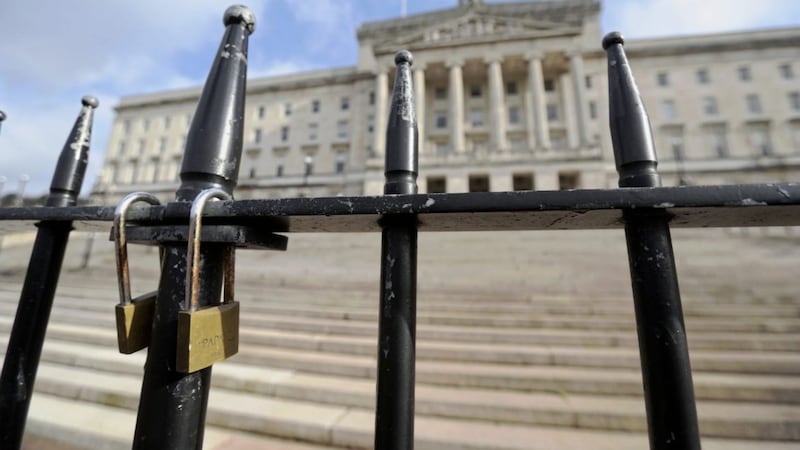INDIRECT rule now has an expiry date. After two-and-a-half years of bizarre, barely lawful limbo, government sources have conceded formal direct rule must be introduced by the Brexit deadline of October 31 as civil servants alone cannot handle the ensuing workload.
There is a distinct possibility that deadline will be extended but at the very least indirect rule has been given a finite, imminent limit.
Linking this so clearly to Brexit makes it extraordinarily difficult for Sinn Féin to return to Stormont.
Why go back to manage and be implicated in any form of Brexit, let alone a Boris Johnson Brexit?
The new prime minister would need to stab the DUP pretty hard in the backstop for republicans to find the prospect tempting, although of course that is also a distinct possibility.
The DUP knows this and rumours are circulating it will agree a Stormont deal in September to save face, having already been overruled by Westminster on same-sex marriage and abortion.
For the moment, however, direct rule seems a likelier prospect.
The most urgent question this raises is whether it would be controversial enough to raise the political temperature even higher.
Direct rule is not at all controversial among unionists.
It has been repeatedly described as unacceptable by the Irish government, most recently in a Dáil answer last month to Gerry Adams.
But Taoiseach Leo Varadkar has said it would be acceptable with Irish input. In 2017, he set the minimum input as reviving the British-Irish Intergovernmental Conference, the main east-west institution of the Good Friday Agreement, which was done from July 2018.
So Dublin can easily accede to direct rule, provided it and the British government present enough of a united front to make Irish input appear meaningful.
While there may not be an Anglo-Irish meeting of minds over Brexit and Northern Ireland, both governments should have no trouble agreeing on the need to restore devolution and preserve the Good Friday Agreement.
If Dublin accepts direct rule, it should be less unacceptable to nationalists.
The Westminster intervention on same-sex marriage and abortion must have changed views on this already.
Direct rule would pass culture powers back to Westminster and therefore reactivate the British government's commitment under the St Andrews agreement to introduce an Irish language act.
How controversial can direct rule be with nationalists if it addresses their totemic concerns about devolution?
The DUP-Conservative confidence and supply deal remains the fundamental point of controversy with direct rule.
At the MacGill summer school last weekend, Varadkar implied it is incompatible with the British government's requirement to be impartial under the Good Friday Agreement and would make direct rule unbalanced.
Sinn Féin says the deal also prevents the restoration of Stormont.
If it is incompatible with both direct rule and devolution for Northern Ireland MPs to have influence over government, that is tantamount to saying they are second-class MPs and must be permanently consigned to the back-benches.
Not surprisingly, the Good Friday Agreement says nothing of the sort - that would be a breach of its equality and rights provisions.
The impartiality requirement in the Agreement relates to impartial administration, defined as "freedom from discrimination" and "just and equal treatment". It does not mean a British government has to be politically impartial.
The DUP-Conservative deal recognised all this by specifically excluding devolved matters and restricting itself to Westminster votes only.
But none of that has addressed nationalist concerns. It is a pity nobody has referred the deal to the Equality Commission, which arguably has some jurisdiction to monitor it.
The great irony of indirect rule is that London persisted with limbo because it worried about how its dependence on the DUP would look under direct rule, yet it looks even worse under indirect rule.
The lack of clarity on decision-making only fosters fears of undue DUP influence.
Perhaps a spell of direct rule would help clear that up.









